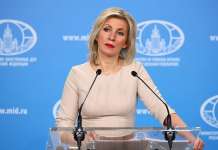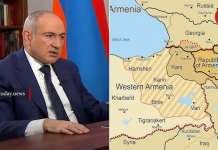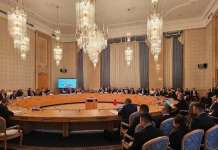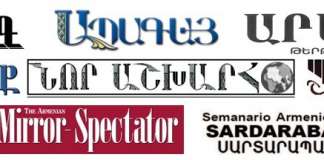Armenian foreign minister Zohrab Mnatsakanyan, who is in Paris on a working visit, on April 17 visited the French Institute of International Relations (Institut français des relations) where a discussion titled “Armenia’s foreign policy after the velvet revolution” was held with the French leading experts with the rules of the Chatham House, the Armenian MFA told Armenpress.
In his remarks the foreign minister introduced Armenia’s foreign policy priorities, as well as the ongoing reforms of the government which received a broad mandate by the people. “The velvet revolution of Armenia was exclusively a domestic process. I am confident you remember the flow of the people in the streets of Armenia who were demanding change and also the Armenian flag on their hands: there wasn’t any other flag. The velvet revolution of Armenia had no geopolitical subtext. It relates to us, our country and our people”, the Armenian FM said.
The minister noted that Armenia’s foreign policy is based on the deep understanding of security which is linked with several factors: those are the historical context, the regional policy and the current global challenges.
According to the FM, in the past 27 years Armenia has built its security’s architecture which is based on the principle of comprehensive and cooperative security. This principle includes the military-political security, as well as the security of Armenia’s state and public structures, economic and social development. In order to ensure comprehensive security Armenia cooperates with its allies and international partners, by always having the point that its foreign policy is exclusively pro-Armenian, and Armenia is not building relations with any country at the expense of another.
During the Q&A session minister Mnatsakanyan also introduced Armenia’s stance on a number of urgent regional and international issues. Touching upon Armenia’s foreign policy priorities, the FM reaffirmed the country’s approaches and principled position on the peaceful settlement process of the Nagorno Karabakh conflict, stating that the settlement of the conflict must be based on respecting the Artsakh people’s inalienable right to live free and safe.
















